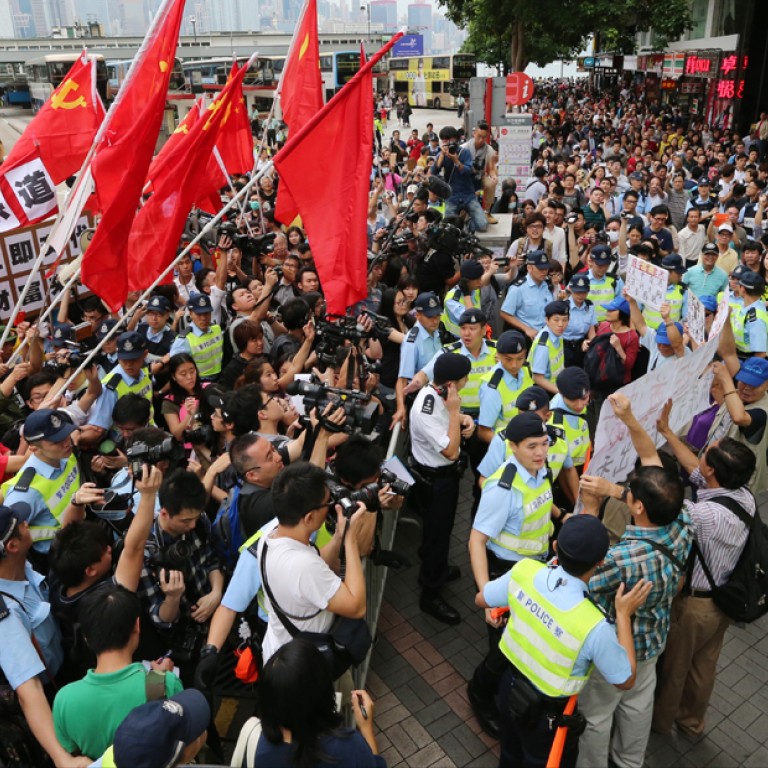
No place for hateful finger-pointing in a truly civil society
Alice Wu is troubled by the incivility on display of late in Hong Kong, which has less to do with a peeing toddler than the reactions to it
The call of nature has been too much on our minds in Hong Kong. Almost everyone has weighed in and pent-up emotions have been gushing out over the now infamous video of a mainland couple allowing their child to urinate in a busy Mong Kok street.
The cultural divide between Hongkongers and mainlanders is already dangerously wide, and continues to grow.
Previously deemed too unsavory a topic for the dinner table, details of this latest incident of our culture clash have broken down the walls of etiquette. While discussion of current events may be necessary, there's a difference between being socially engaged and perpetuating animosity.
Finger-pointing resolves nothing, nor does dwelling on the distasteful details. Retaliation and aggression perpetuate hate; and hate, of course, begets hate. It's unfortunate that some commentators, be they media figures themselves or those quoted in the news, have not only exacerbated the problem, but helped to create new ones.
Resolving this culture clash once and for all will take every ounce of our political wisdom, dexterity and magnanimity. In the meantime, humanity does have a choice. We can continue to obsess, or we can channel our thoughts elsewhere.
It's not so much an issue of "when nature calls" any more; it wasn't entirely that to begin with. It's now up to us to decide what we do "when humanity calls".
Ponder what Martin Luther King Jnr said at his Nobel Peace Prize acceptance speech in 1964: "Man must evolve for all human conflict a method which rejects revenge, aggression and retaliation."
Ponder, also, the themes of William Golding's , because we in today's Hong Kong are living through a modern version of his masterpiece: confronting the conflicting human impulses towards civilisation and barbarity; right and wrong; and individualism and the collective good.
And what do we make of the so-called tolerance paradox? When a person who values tolerance responds antagonistically to intolerance, the person stands accused of being intolerant himself.
More troubling still, "tolerance" is sometimes misconstrued as condoning unlawful, unhygienic and inconsiderate behaviour in public.
Must we tolerate the intolerant? John Rawls, in , concludes that a just society must tolerate intolerance, for otherwise the society would itself be intolerant, and thus unjust. But Rawls also sees that society has a reasonable right of self-preservation that takes precedence over tolerance.
We have laws against relieving oneself in public, so that is our society's rejection of such an act. We don't have laws against perpetuating hate. Does that mean we tolerate it? In a tolerant society, do we have the moral right to be intolerant? We can't outlaw bad taste or rudeness. Does that mean we're encouraging these despicable traits?
The true test of civility is whether we can stand our ground, say our piece, then rise above it without resorting to aggression and retaliation, regardless of what others do to provoke us.

